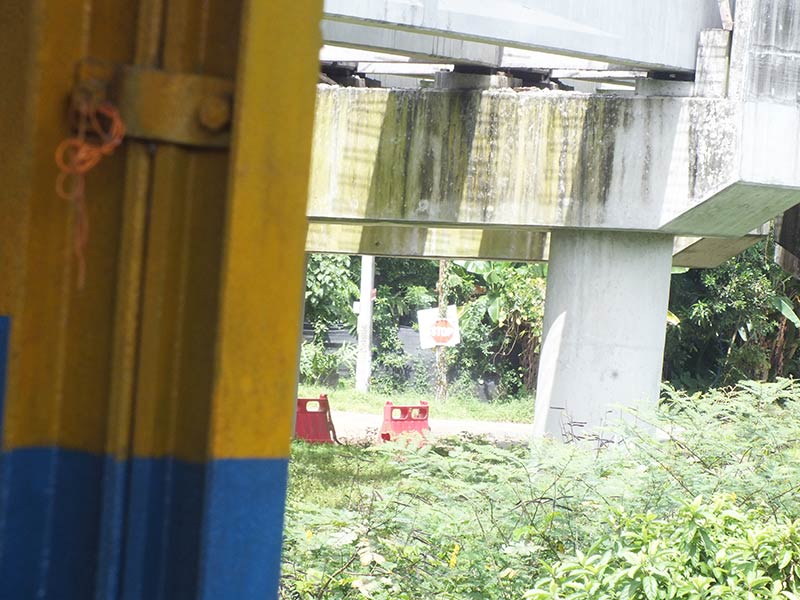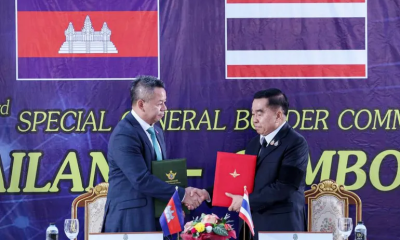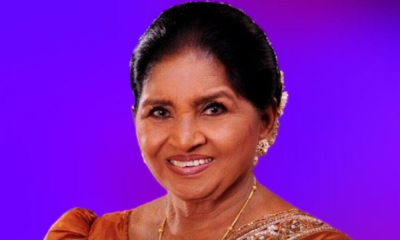News
Paddy cultivation under giant threat
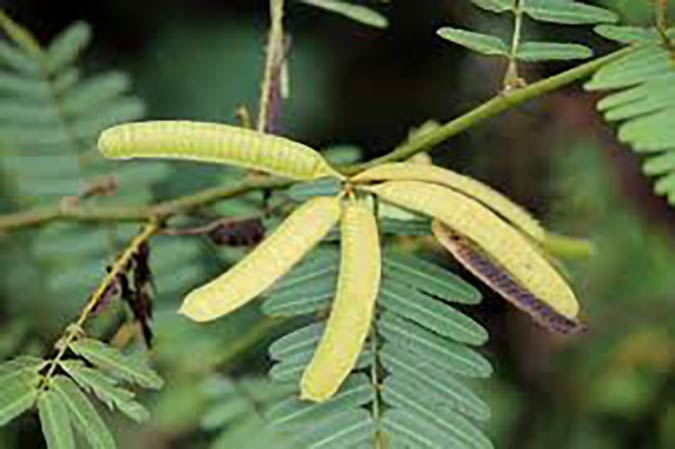
by Jagath Kanaherarachchi
Environmentalists have warned that low lands and abandoned paddy fields in the Western Province are under threat of being encroached upon by the invasive plant Yoda Nidikumba soon.
The aggressive invasive plant known as the Giant Mimosa (Mimosa pigra) has been identified as a significant threat, with the potential to spread across low-lying areas, including paddy fields in the Western Province over the next few years.
This plant causes severe impact on biodiversity, agriculture, and human activities. It was previously concentrated in the Central Province, particularly around the Mahaweli River and other waterways. However, it is now rapidly spreading into the Western Province, according to environmentalists.
The Giant Mimosa is taking over abandoned sections of the Central Expressway, particularly in the Kadawatha-Mirigama stretch.
Unlike other Mimosa species found in Sri Lanka, such as Mimosa pudica (Medicinal Mimosa) and Mimosa invisa, the Giant Mimosa (Mimosa pigra) is an exotic, highly invasive species. It has been listed among the top 20 invasive plants in Sri Lanka.
First identified in 1995 at Tennekumbura in Kandy by agricultural scientists Senior Prof Buddhi Marambe of the Agricultural Faculty of the Peradeniya University and Dr. Lakshman Amarasinha, former Director of the Field Crops Research and Development Institute at the Department of Agriculture, the plant has since become a growing concern.
When asked about the rapid spread of the Giant Mimosa in the Western Province, Professor Marambe said that the Ministry of Environment, the Central Environmental Authority, and provincial agricultural and environmental institutions had to take urgent action to neutralise the threat.
“In 2002, our survey in the Central Province revealed that 474 acres were infested with this plant. The current situation may be even worse. The issue is that even if we eradicate all existing plants, the seeds of this species can remain viable for 23 to 50 years, meaning the plant could re-emerge anywhere in Sri Lanka. Additionally, the seeds spread through water, posing a significant risk to paddy fields and wetlands,” Professor Marambe said.
He also warned that the extensive wetlands along the Attanagalu Oya, including areas in Gampaha-Daraluwa, which are frequently flooded, could soon fall victim to the Giant Mimosa invasion.
Latest News
Latha Walpola passes away at the age of 92

Sri Lankan singer Latha Walpola has passed away today (27) at the age of 92.
News
Sajith warns country is being dragged into authoritarian rule

Opposition and SJB Leader Sajith Premadasa has alleged that the current government is attempting to suppress freedom of expression and media freedom to lead the country towards authoritarian rule.
In a video message on Thursday (25), Premadasa said that in a democratic country, the four main pillars safeguarding democracy are the legislature, the executive, the judiciary, and the independent media, but, at present, the government is using the police to violate both the democratic rights of the people and the rights of police officers themselves.
He said that the government is working to establish a police state that deprives citizens of their right to access truthful information.
“For democracy to be protected, media freedom must be safeguarded, and space must be given to independent media. Instead, the government is interfering with the independent media process, using the police to suppress and intimidate independent media,” he said.
He noted that even when independent media present their views based on reason, facts, and evidence, the government attempts to suppress them. Such actions, he said, amount to turning a democratic country into a police state. “Do not suppress the voice of the silent majority, the independent media,” he urged.
Premadasa emphasised that independent media represent the voice of the silent majority in the country and must not be suppressed.
“Media repression is a step towards authoritarian rule, and the people did not give their mandate to create an authoritarian regime or a police state. If the government attempts to abolish democratic rights, the Samagi Jana Balawegaya will stand as the opposition against it,” he said.
The Opposition Leader further alleged that the government was interfering with police independence, stating, “Political interference has undermined the independence of the police, making it impossible for them to serve impartially. Suppressing freedom of expression is an attempt to lead the country towards authoritarian rule.”
Premadasa pointed out that the media has the right to reveal the truth, and interfering with that right is a violation of the rights of 22 million citizens.
News
Wholesale mafia blamed for unusually high vegetable prices
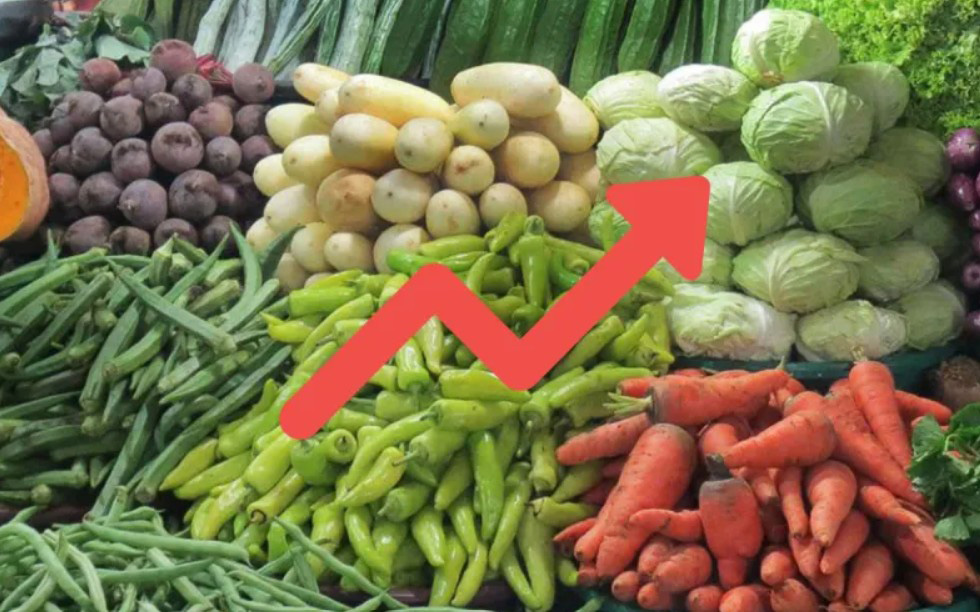
Vegetable prices at the Peliyagoda Manning Wholesale Market surged to unusually high levels yesterday (26), raising concerns among consumers as the festive season drives up demand. The situation is expected to persist over the next few days, a spokesman for the Manning Market told The Island.
He said a sharp increase in the number of buyers visiting the wholesale market, ahead of upcoming festivities, had resulted in a sudden spike in demand, prompting wholesale traders to raise prices significantly. The price hikes have affected a wide range of commonly consumed vegetables, placing additional pressure on household budgets.
According to market sources, the wholesale price of beans climbed to Rs. 1,100 per kilogram, while capsicum soared to Rs. 2,000 per kilogram. Green chillies were selling at around Rs. 1,600 per kilogram. Prices of other vegetables, including beetroot, brinjal (eggplant), tomatoes, bitter gourd, snake gourd and knolkhol, also recorded unusually high increases.
The spokesman alleged that despite the steep rise in prices, vegetable farmers have not benefited from the increases. Instead, he claimed that a group of traders, who effectively control operations at the wholesale market, are arbitrarily inflating prices to maximise profits.
He warned that if the relevant authorities fail to intervene promptly to curb these practices, vegetable prices could escalate further during the peak festive period. Such a trend, he said, would disproportionately benefit a small group of middlemen while leaving consumers to bear the brunt of higher food costs.
By Kamal Bogoda ✍️
-

 News5 days ago
News5 days agoMembers of Lankan Community in Washington D.C. donates to ‘Rebuilding Sri Lanka’ Flood Relief Fund
-

 News3 days ago
News3 days agoBritish MP calls on Foreign Secretary to expand sanction package against ‘Sri Lankan war criminals’
-

 Business7 days ago
Business7 days agoBrowns Investments sells luxury Maldivian resort for USD 57.5 mn.
-

 News6 days ago
News6 days agoAir quality deteriorating in Sri Lanka
-

 News6 days ago
News6 days agoCardinal urges govt. not to weaken key socio-cultural institutions
-

 Features7 days ago
Features7 days agoHatton Plantations and WNPS PLANT Launch 24 km Riparian Forest Corridor
-
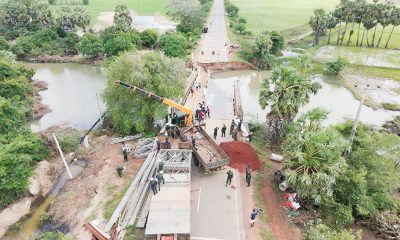
 Features7 days ago
Features7 days agoAnother Christmas, Another Disaster, Another Recovery Mountain to Climb
-

 Features5 days ago
Features5 days agoGeneral education reforms: What about language and ethnicity?

